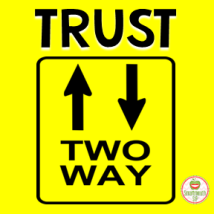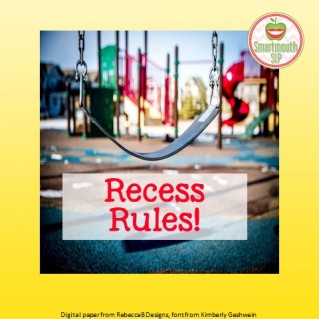
This past school year brought an unusually large amount of contentious speech meetings my way, involving attorneys and advocates. I traveled our large county to support my fellow SLPs in these long, stressful meetings. It began to feel like these meetings were becoming the norm, at least in my former school system, without the parents first communicating their concerns directly to the SLP and/or teachers. To be fair, I have worked with some fabulous advocates who really had what was best for the student at the heart of their agendas, and I was always happy to be part of those meetings! The bottom line is that this is what all of us should be aiming for, right? I have also been the mom of a child with an IEP, so I have been on both sides of this table.
What is alarming to me is the tendency to jump over the social protocol of talking to someone they have a concern with directly. Instead, they immediately call a meeting, armed with legal representation. This leads to a lot of miscommunication, frustration and anxiety between the team members and the family. Trust is a two way street. I watched families demand the school pay for summer services, private tutors and camps for their children, even when the student had made steady progress all year. As a parent, I knew it was equally my responsibility to provide support at home for my child, so I hired a tutor, spent extra time working on what my son’s teachers sent home and attended conferences with them to better understand his strengths and weaknesses. Yes, it was expensive and time-consuming, but it was what I felt I needed to do to help him succeed. It cannot all fall on the school, it has to be a shared responsibility with the family.
Unfortunately, it is rare that anyone speaks up in these meetings with advocates and attorneys to ask what the parent is doing to support these skills too. I have seen parents and attorneys berate SLPs and teachers at these meetings in a manner that they would never tolerate being spoken to, and barely anyone bats an eye. Why? Fear keeps us quiet, no one wants to be a target in these meetings. I wish I had been braver to speak up more often in these meetings. It is a slippery slope to try to get the family on board with working together, when all they hear is “no” and their legal support labels us as bad teachers and SLPs, since we clearly do not want to help the child. This is typically the point the meeting is at a standstill and everyone is feeling crummy.
My former boss has an amazing way of staying calm and refocusing the team on finding solutions to problems in these difficult meetings. Sometimes this resolved the issues quickly, sometimes not, but we always knew she had our back. She took a lot of verbal abuse on our behalf with extraordinary grace in these meetings, and not once did I see her react or retaliate. Attacking and disrespecting the people working with your child is not okay. Talk to us and help us understand your concerns and answer your questions, we really are on the same team and want your child to succeed! I think it goes back to the basic social premise of thinking about how our words and actions make other people feel and should be the golden rule in meetings. Treat others the way you would want to be treated.
How do you handle difficult meetings? How do involve your families in carryover and support? Share here!





